researching herbs
lorna-organic
16 years ago
Related Stories
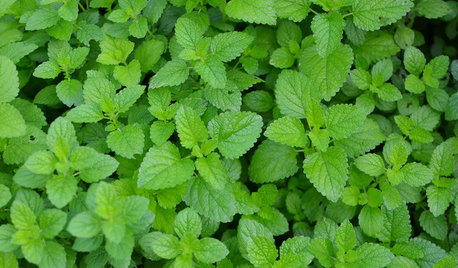
EDIBLE GARDENS12 Essential Herbs for Your Edible Garden
Make home cooking and drinks even better with herbs plucked from your own backyard or windowsill pot
Full Story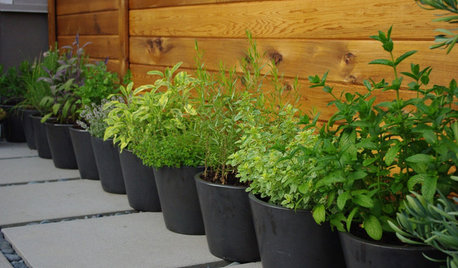
GARDENING GUIDES4 Herb Container Gardens for Fabulous Global Cuisine
Tingle your taste buds with the unbeatable taste of fresh herbs in your Italian, Asian, Mexican or French fare
Full Story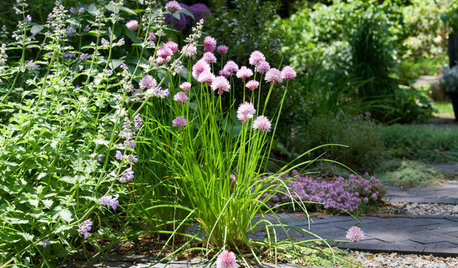
EDIBLE GARDENS8 Surefire Vegetables and Herbs for Beginning Gardeners
Learn the edible plants that are popular and easy to grow in a backyard or container garden
Full Story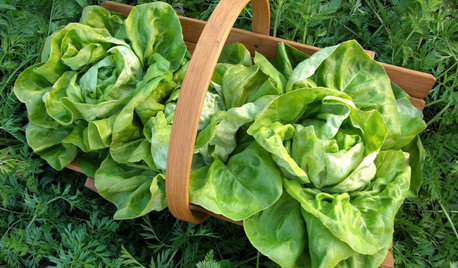
GARDENING GUIDES10 Easy Edibles for First-Time Gardeners
Focus on these beginner-friendly vegetables, herbs, beans and salad greens to start a home farm with little fuss
Full Story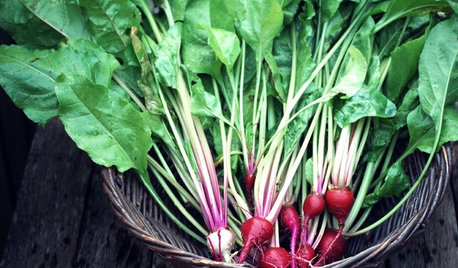
EDIBLE GARDENS8 Last-Minute Additions to a Summer Edible Garden
It’s not too late to get these vegetables and herbs planted for a bountiful harvest this year
Full Story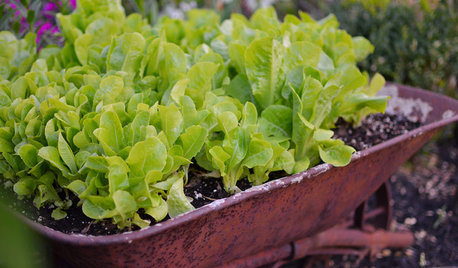
GARDENING GUIDESYes, You Can Grow Food in a Shady Yard
Your shady garden doesn’t have to be forever barren. Berries, herbs and other shade-loving plants can produce a delicious bounty
Full Story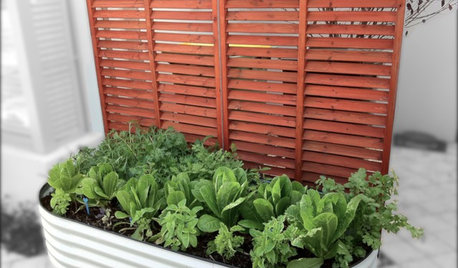
FEEL-GOOD HOME21 Ways to Waste Less at Home
Whether it's herbs rotting in the fridge or clothes that never get worn, most of us waste too much. Here are ways to make a change
Full Story
STONETuscan Travels Inspire a Granite Outdoor Kitchen in Maine
Serving up gourmet pizza and big views, this stone-laden cooking and entertaining space can cater to a crowd
Full Story
FARM YOUR YARD6 Things to Know Before You Start Growing Your Own Food
It takes time and practice, but growing edibles in the suburbs or city is possible with smart prep and patience
Full Story
MOST POPULAR33 Magic Household Cleaning Tips
Houzzers from around the world share their tips for transforming housework into child’s play
Full StoryMore Discussions






rusty_blackhaw
fatamorgana2121
Related Professionals
Arnold Landscape Architects & Landscape Designers · Billerica Landscape Contractors · Athens Landscape Contractors · Beachwood Landscape Contractors · Hollywood Landscape Contractors · Long Branch Landscape Contractors · Waterford Landscape Contractors · West Haverstraw Landscape Contractors · Whittier Landscape Contractors · Wickliffe Landscape Contractors · East Norriton Landscape Contractors · Maplewood Landscape Contractors · Albany Carpenters · Hayward Carpenters · Palmetto Bay CarpentersDaisyduckworth
apollog
herbalbetty
akewa
herbal411
oakleif
beckilove
oakleif
brendan_of_bonsai
oakleif